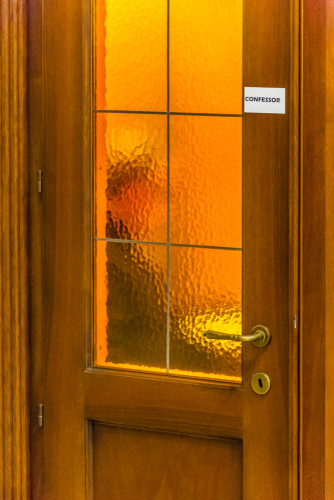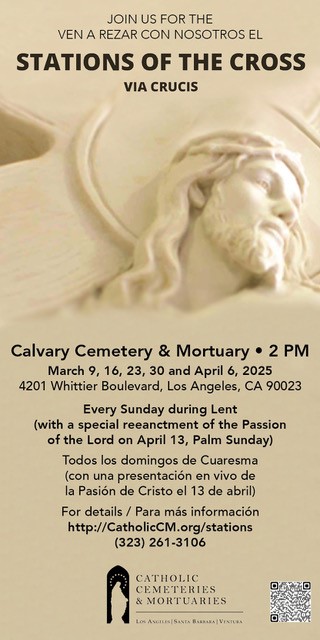In the Introductory Rites of the Mass, after the greeting, “The priest invites those present to take part in the Act of Penitence, which, after a brief pause for silence, the entire community carries out through a formula of general confession…After the Act of Penitence, the Kyrie is always begun, unless it has already been included as part of the Act of Penitence. Since it is a chant by which the faithful acclaim the Lord and implore his mercy, it is ordinarily done by all, that is, by the people and the choir or cantor having a part in it.” (General Instruction of the Roman Missal 51-52)
“The faithful recall their sins and place their trust in God’s abiding mercy. The Act of Penitence includes the Liturgy: The Work of the People, Kyrie Eleison, a Greek phrase meaning, “Lord, have mercy.” This litany recalls God’s merciful actions throughout history.” (United States Conference of Catholic Bishops)
So, in this ritual action, we recall our sins, both individual and communal; we stand in humble silence together to implore God’s mercy; and we place our trust in that all abiding mercy.
Presiders and Parish Liturgy Committees, when shaping how the Mass is to be celebrated on any given Sunday, must remember that this moment in the very beginning of the liturgy is not prayed in an individual context only. It is also prayed as a community, acknowledging our sins as a people, our social sins.
We must also remember that our celebrations of liturgy are not simply historical re-enactments. They are deeply connected to our current lived experience. All of the pain, suffering and sinfulness in our lives and in the world today is a part of who we are in prayer and worship.
From the very start, the ritual is shaped in a way that allows us to recognize that we, as individuals, and as a community, have sinned against God, against God’s creation, and against one another. In that act of communal penance, we also seek to know and to trust in God’s mercy.The spoken acknowledgement of these social or communal sins can be incorporated into the presider’s introductory comments and/or in the wording of the three tropes that can be a part of the Kyrie litany. They are absorbed into our prayer through our communal silence together during the penitential rite.
Particularly in regards to our sins against creation, and in the light of Pope Francis’ statement, Laudato Si, at Mass during the penitential act, we need to remember that we have sinned against the earth and the gifts of the earth. We need to remember to ask for forgiveness for the ways in which our human excesses have polluted the air and the waters of the earth. We need to remember to ask forgiveness for the damage we have done to trees and animals and all vegetation. We need to acknowledge our sinfulness as a people on this planet. We need to recognize our participation in the careless ways that have damaged the earth, God’s beautiful creation. And we need to seek God’s mercy.
Consider the Confiteor in the context of this communal understanding of sin:
“I confess to almighty God and to you, my brothers and sisters,
that I have greatly sinned in my thoughts and in my words,
in what I have done and in what I have failed to do,
through my fault, through my fault, through my most grievous fault;
therefore, I ask blessed Mary ever-Virgin, all the Angels and Saints,
and you, my brothers and sisters, to pray for me to the Lord our God.”
We confess to God that we have sinned in what we have done and in what we have failed to do.
We are caretakers of the sacred memory, the sacred story of Jesus Christ. How we tell that story changes how we live our lives. If we recognize this story in our daily lives, and can, therefore, hear and pray this penitential act in a broader context, we will better understand how our behavior as a people has damaged God’s good earth. Through silence and contemplation, we will come to know how we must change the ways in which we partake of the goods of the earth, working to repair the damage we have done.
Our intercessions in the Universal Prayer can also acknowledge our awareness of the damage we have caused to the earth. It is important to remember to include in these prayers each week a petition for the healing of the earth. Together we need to pray for the wisdom to know how to change our lives in ways that will support and work in partnership with the earth, rather than in conflict with it.

